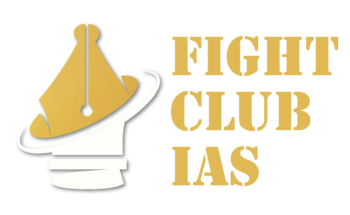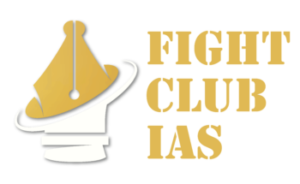Sociology as a Science
Table of Contents
Science
- Science is a body of systematic knowledge and based on reason and evidence.
- Science is “a branch of knowledge or study dealing with a body of facts or truths systematically arranged and showing the operation of general laws”.
- It refers to the application of objective methods of investigation, reasoning and logic to develop a body of knowledge about given phenomena.
- Martha Nussbaum – Sociology is useful science because it solves problems of society.
- August Comte and Durkheim – Sociology is science because it adopts scientific method.
Characteristics of Science
- Objectivity: It is one of the core characteristics of science. It refers to the practice of observing, collecting, and analyzing facts without letting personal biases, emotions, or subjective opinions interfere with the process. This ensures that scientific knowledge is based on facts and evidence rather than individual beliefs or preferences.
Example: When measuring the temperature of a solution in a chemistry experiment, a scientist uses a thermometer with precise, standardized units (Celsius or Fahrenheit) to ensure objective and repeatable results. This guarantees that anyone conducting the same experiment will get the same measurement, independent of personal factors.

- Verifiability: Verifiability refers to the idea that scientific knowledge or claims can be tested, verified, and confirmed by independent experiments or observations. A statement or hypothesis is only scientific if it can be subject to verification. Example: Theory of Evolution Darwin’s theory of natural selection is verifiable through observations and fossil records. Over time, biological evidence has been collected through fossil discoveries, genetic research, and the study of animal behavior, all of which verify aspects of the theory.

- Empiricism: It is the philosophical concept that knowledge comes primarily from sensory experience—meaning observations, experiments, and evidence gathered through the senses (sight, touch, hearing, etc.) are the foundation of all scientific knowledge. This approach contrasts with relying solely on theory, speculation, or tradition.
Example: By observing craters and mountains on the moon through his telescope, Galileo gathered empirical data that refuted the long-held belief of a perfectly smooth moon, advancing scientific understanding of astronomy.
- Experimentation: It is a core component of the scientific method, involving controlled procedures to test hypotheses, gather data, and observe outcomes. Through experiments, scientists manipulate variables to investigate causal relationships or confirm or refute a theory.
- Gregor Mendel conducted experiments with pea plants to understand how traits are inherited. By cross-breeding different varieties of peas, Mendel manipulated specific traits like flower color and seed shape to observe how they were passed down through generations.

- Reliability: It refers to the consistency and repeatability of a scientific experiment, test, or measurement. If a method or result is reliable, repeating the experiment under the same conditions should yield the same results. Reliability is crucial for building trust in scientific findings and ensuring that results are not due to chance or isolated factors.
Example: If a student takes the SAT (a standardized test) twice under similar conditions (within a short time frame, without significant external changes), the scores should be quite similar, demonstrating the test’s reliability. If the scores fluctuate drastically, the test may be considered unreliable.

- Validity refers to the accuracy of a method or experiment in measuring what it is intended to measure. A valid test or experiment accurately reflects the reality or concept being studied, ensuring the results are meaningful and relevant.
- Example: In educational testing, if a math test is designed to measure a student’s arithmetic skills, the questions must focus on arithmetic. If it contains irrelevant content (e.g., language skills), it lacks validity. A valid test of arithmetic will yield accurate insights into the student’s math ability, without being influenced by unrelated factors.
- Predictability: It refers to the ability of scientific theories or models to accurately forecast future events or behaviors based on established principles and evidence. A reliable scientific theory allows researchers to make predictions that can be tested and validated through observation and experimentation.
- Example: Meteorologists use atmospheric data and models to predict weather patterns. By analyzing factors like temperature, humidity, and wind speed, they can make accurate forecasts.

Is Sociology a Science?
Yes, Sociology is a Science
- Use of Scientific Methods: Sociologists often employ systematic and empirical research methods similar to those used in natural sciences. This includes surveys, experiments, and observational studies to gather data about social behavior and structures.
- Example: Studies on social phenomena, like voting behavior or crime rates, are conducted using quantitative methods to analyze patterns and relationships, allowing for hypotheses to be tested and validated.
- Theory Development: Sociology contributes to theoretical frameworks that explain social behavior and institutions. Just like in natural sciences, sociological theories can be tested and refined based on empirical evidence.
- Example: Theories like functionalism or conflict theory provide explanations for social dynamics and can be assessed through research to determine their validity and applicability.
- Generalization of Findings: Sociological research aims to identify trends and patterns that can be generalized to larger populations. This aligns with the scientific goal of producing knowledge that is not just specific to individual cases but can apply to broader social contexts.
- Example: Studies on the impact of education on social mobility may yield insights applicable to various societies, supporting the notion that sociological findings can have predictive value.
No, Sociology is not a Science
- Complexity of Social Phenomena: Critics argue that social phenomena are too complex and influenced by numerous factors, including cultural, historical, and individual differences, making them difficult to study with the same precision as natural sciences.
- Example: Human behavior is often unpredictable and influenced by emotions, beliefs, and social contexts, which can lead to variations that are not easily quantifiable or replicable.
- Subjectivity in Interpretation: The interpretation of social data can be subjective, influenced by the researcher’s perspectives and biases. Unlike natural sciences, where measurements can be objectively verified, sociology often involves qualitative methods that may lead to differing interpretations.
- Example: In-depth interviews or ethnographic studies can yield rich data about social interactions, but the meaning derived from these interactions can vary based on the researcher’s background and worldview.
- Normative and Value-Laden Aspects: Sociology often addresses moral and ethical issues, which can complicate its classification as a pure science. The normative aspects of sociological research—such as examining social justice or inequality—may lead to biases that affect objectivity.
- Example: Sociological studies on race, gender, or class may advocate for social change or highlight injustices, which can influence how research is conducted and interpreted, contrasting with the objective stance often held in natural sciences.
The classification of sociology as a science remains contested. Supporters argue that its use of empirical methods and theory development align it with scientific disciplines, while critics highlight the complexities, subjectivity, and normative elements of social research that differentiate it from natural sciences. Ultimately, sociology may occupy a unique position that blends scientific inquiry with interpretative understanding of human behavior and society.
Previous Year Questions
- Is Sociology a science? Give reasons for your answer. (2015)
Important Keywords
Science, Systematic Knowledge, Objective Methods, Martha Nussbaum, Durkheim, Standardized Units, Verifiability, Theory of Evolution, Sensory Experience, Empiricism, Galileo, Predictability, Experimentation, Reliability, Validity, Scientific Methods, Theory Development, Generalization, Social Phenomena, Subjectivity and Value-Laden Aspects.


